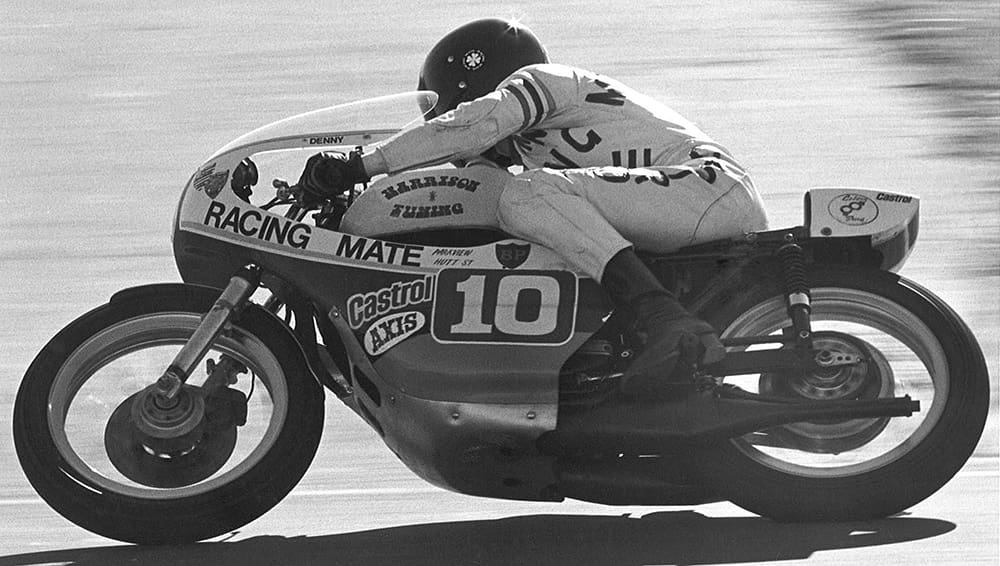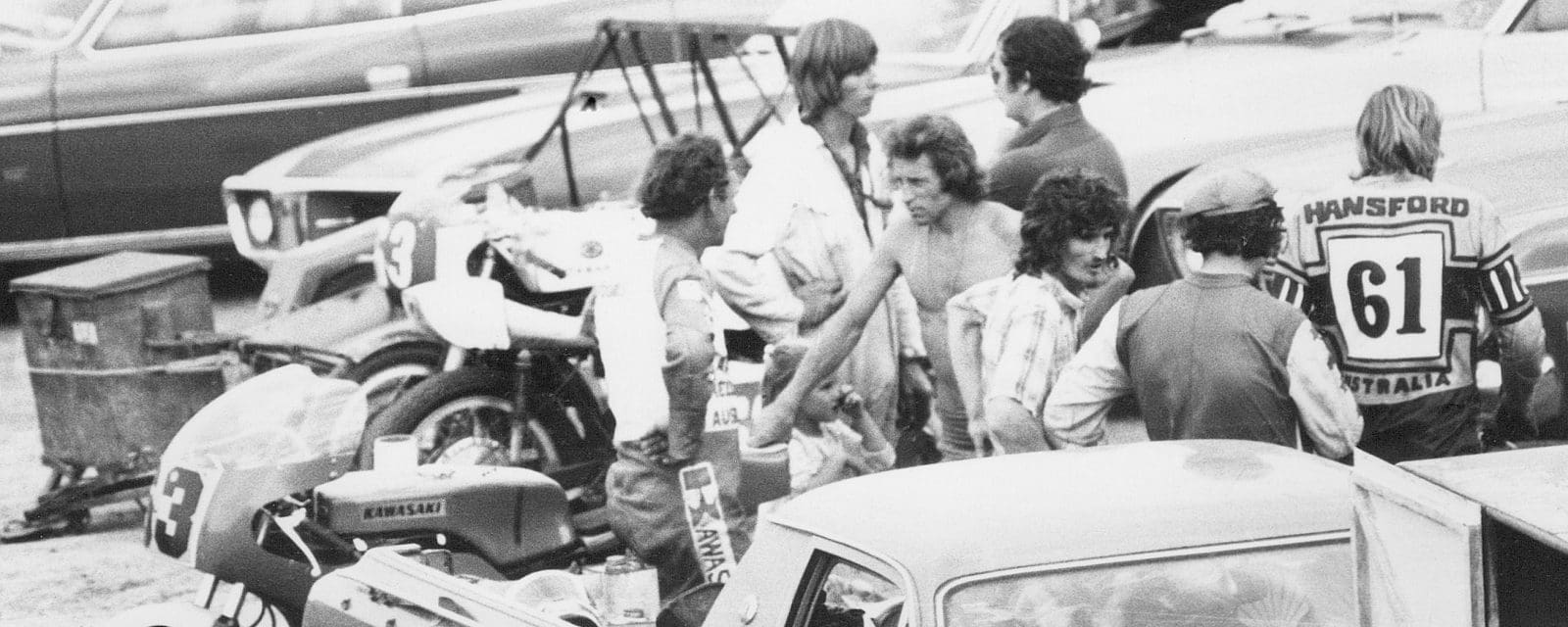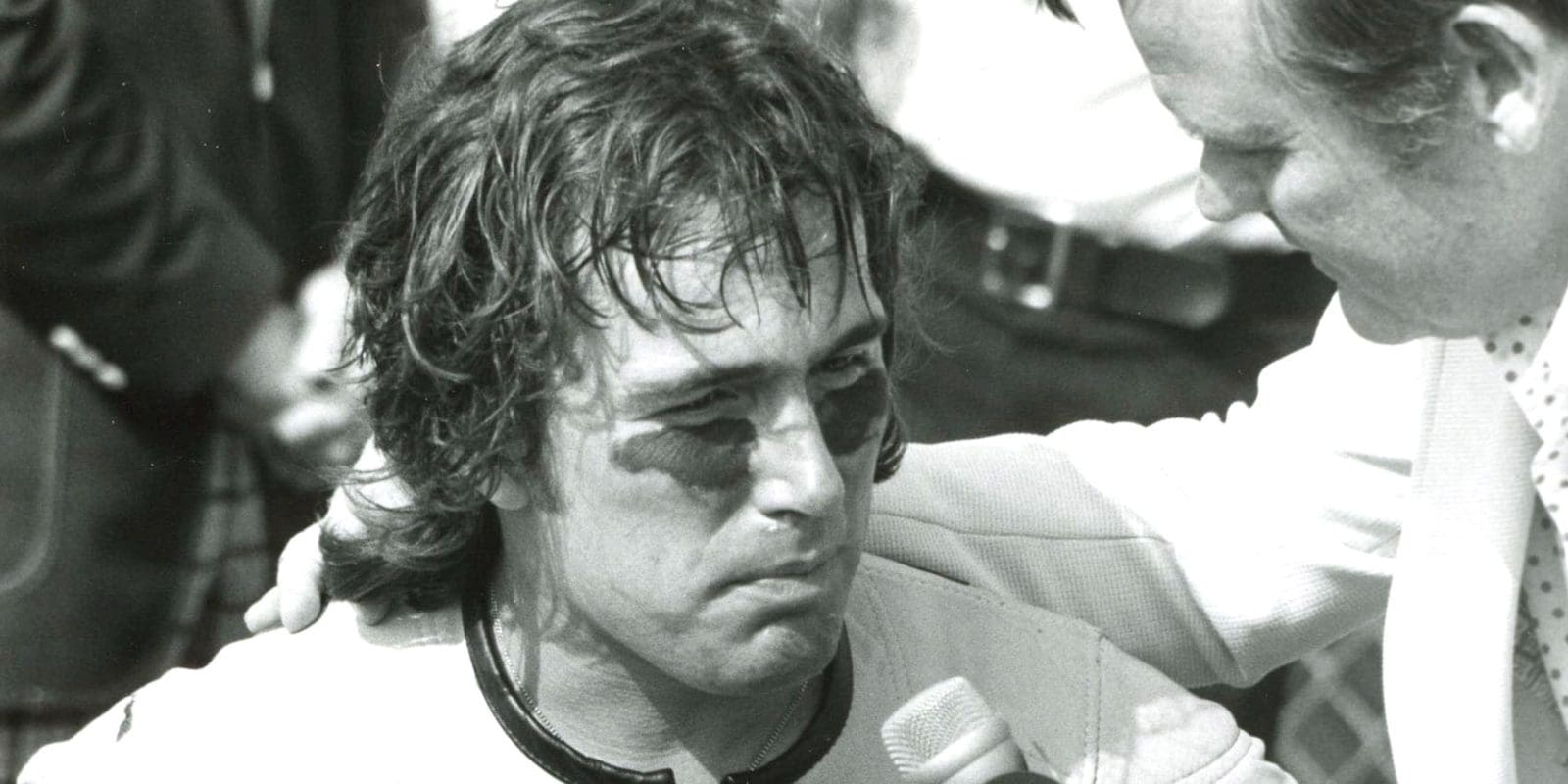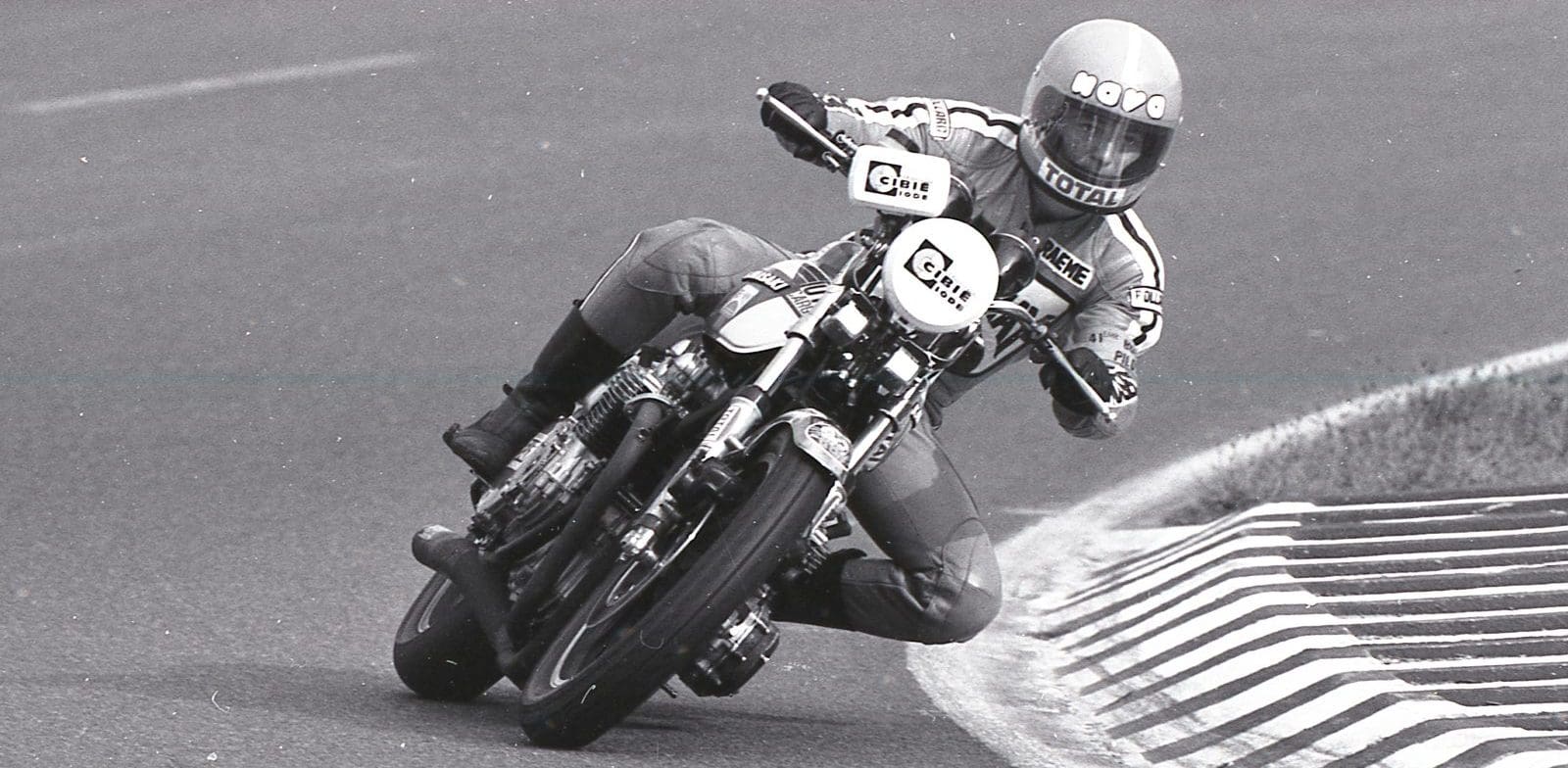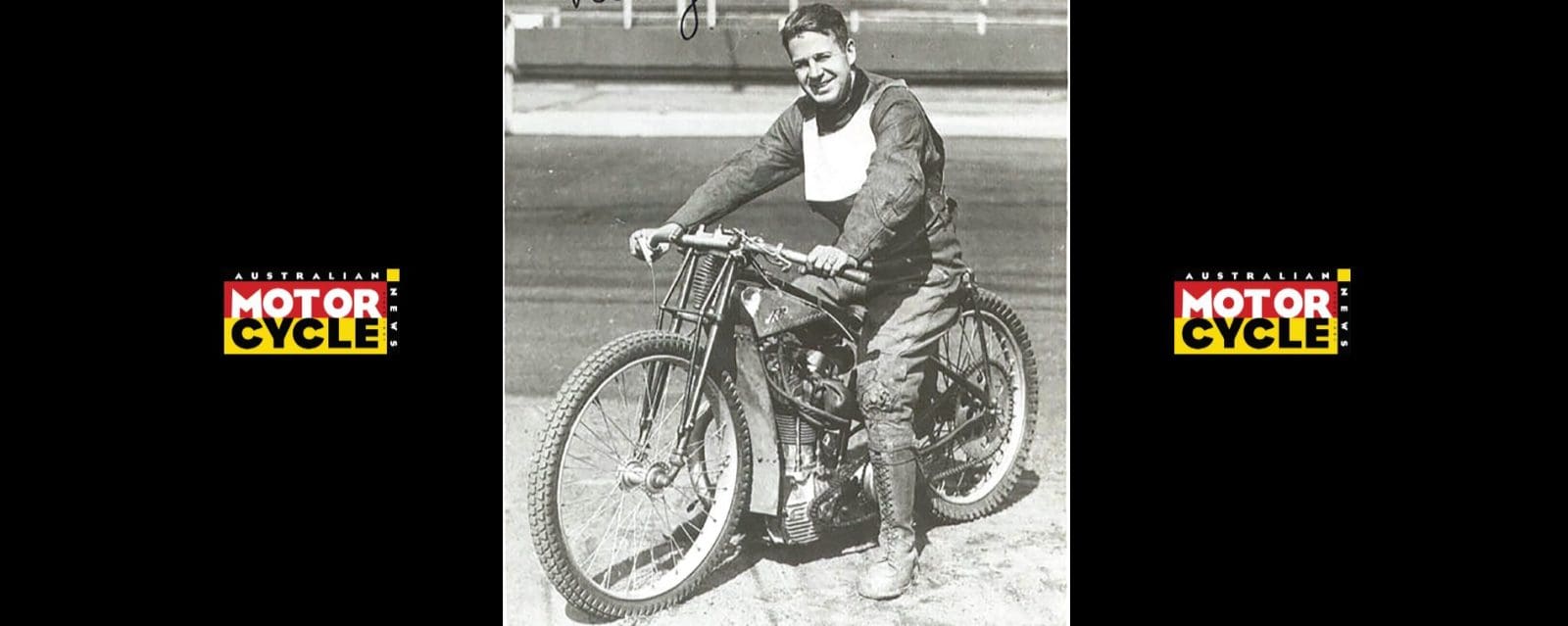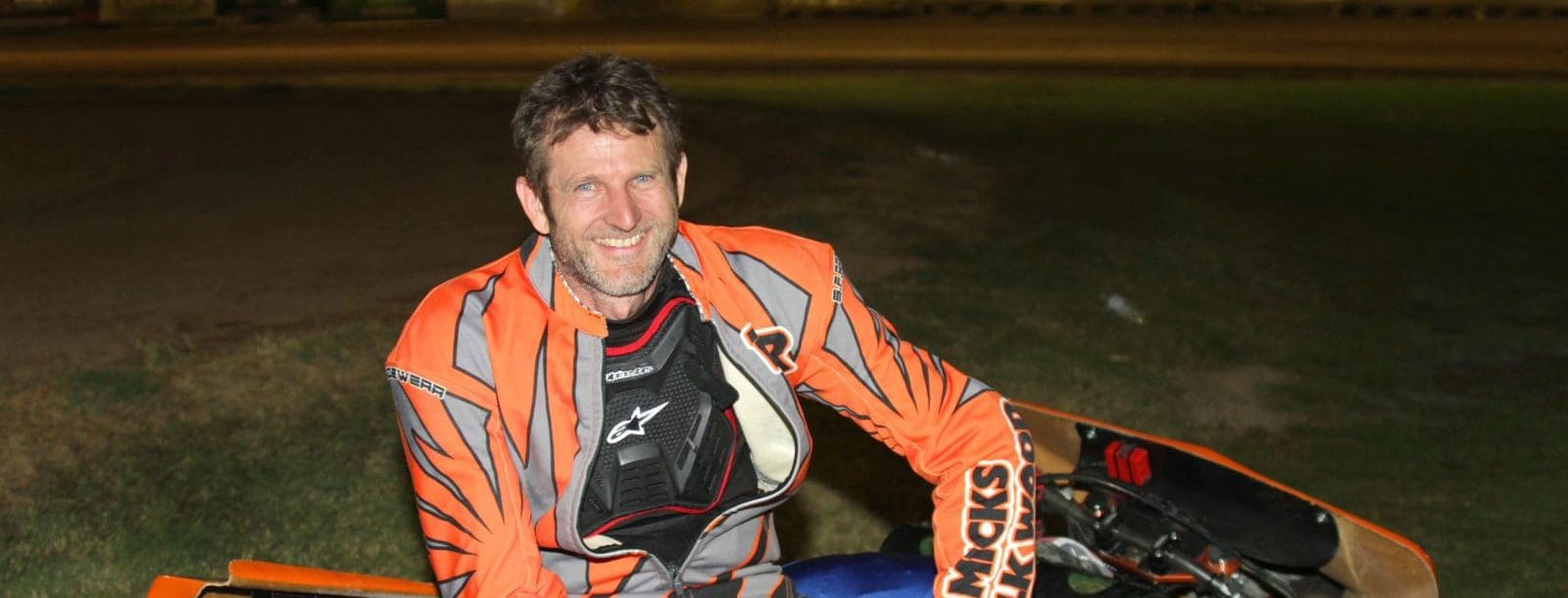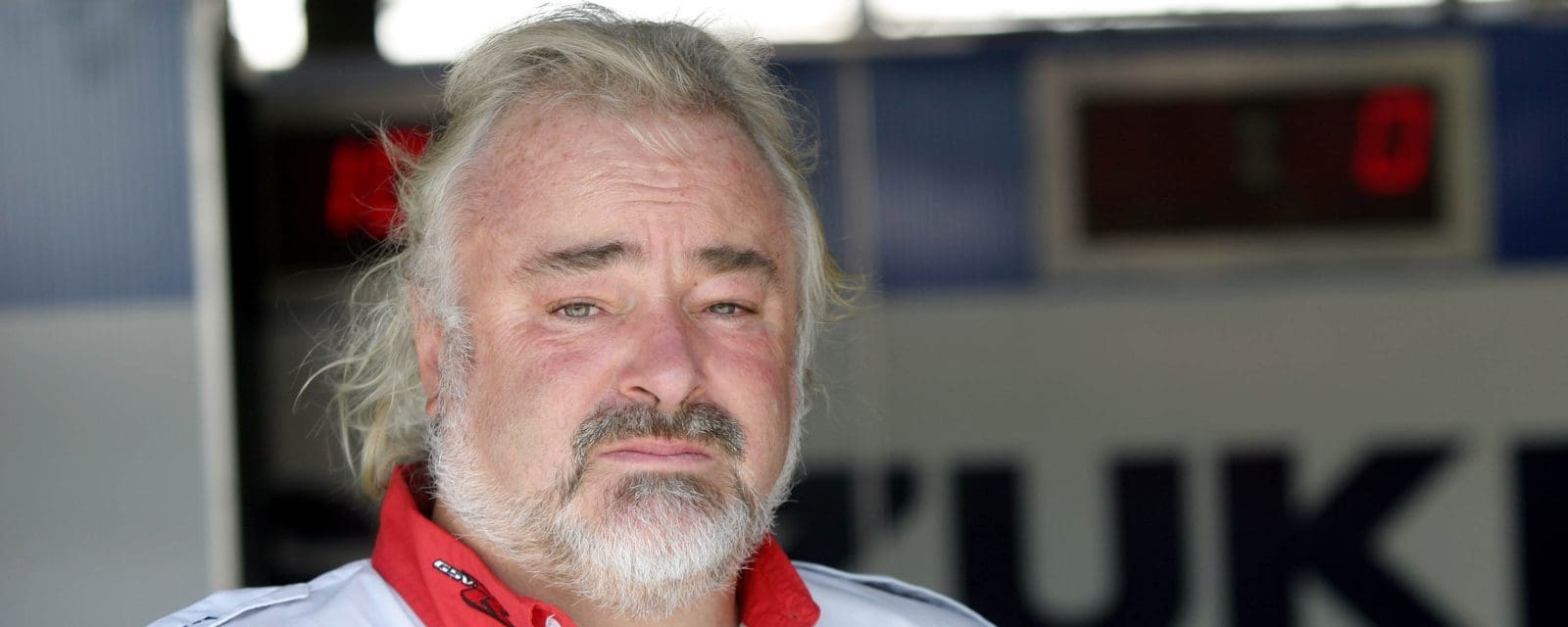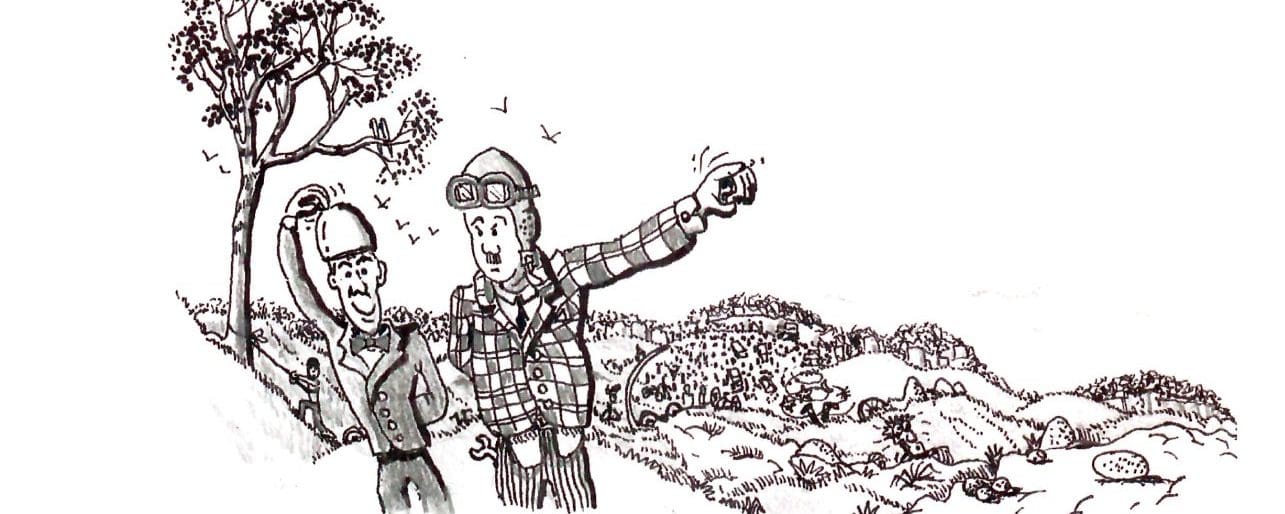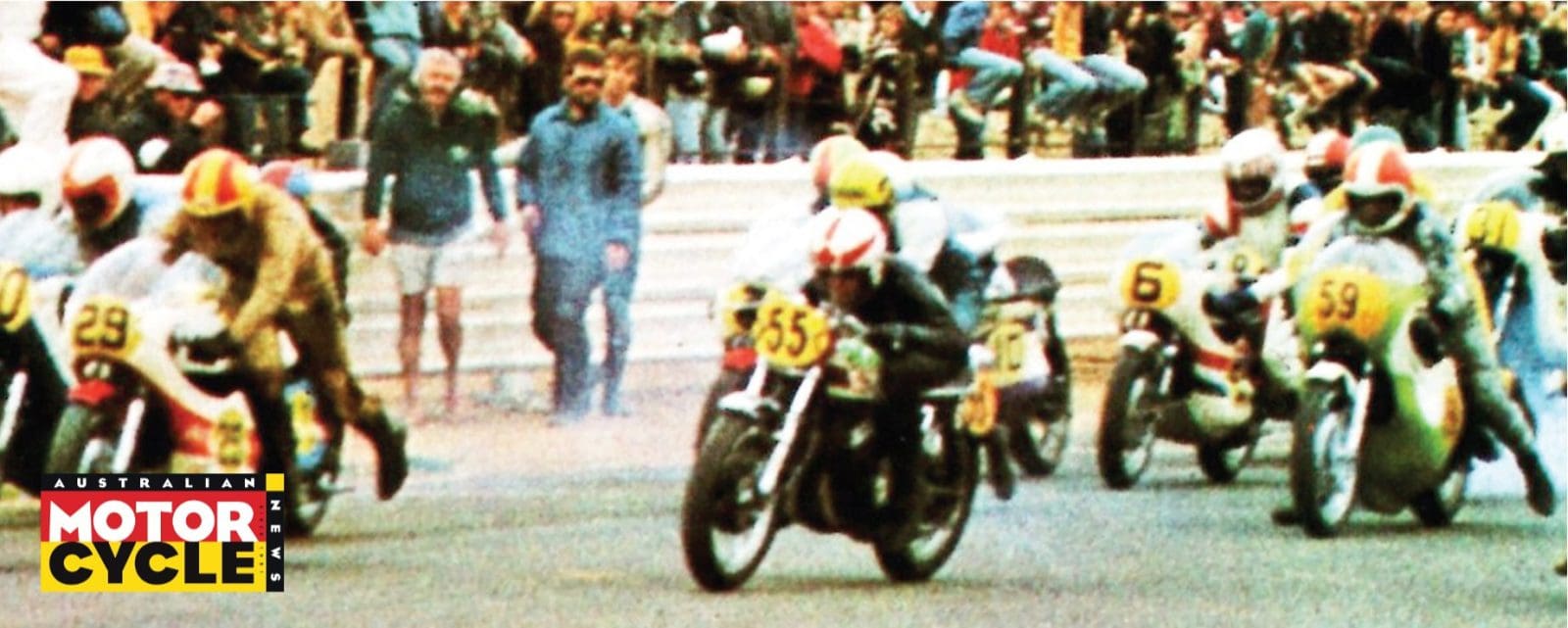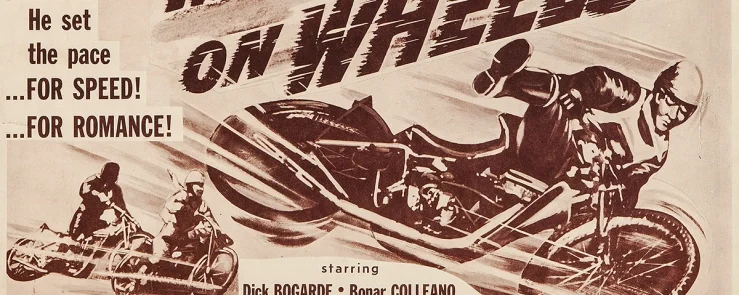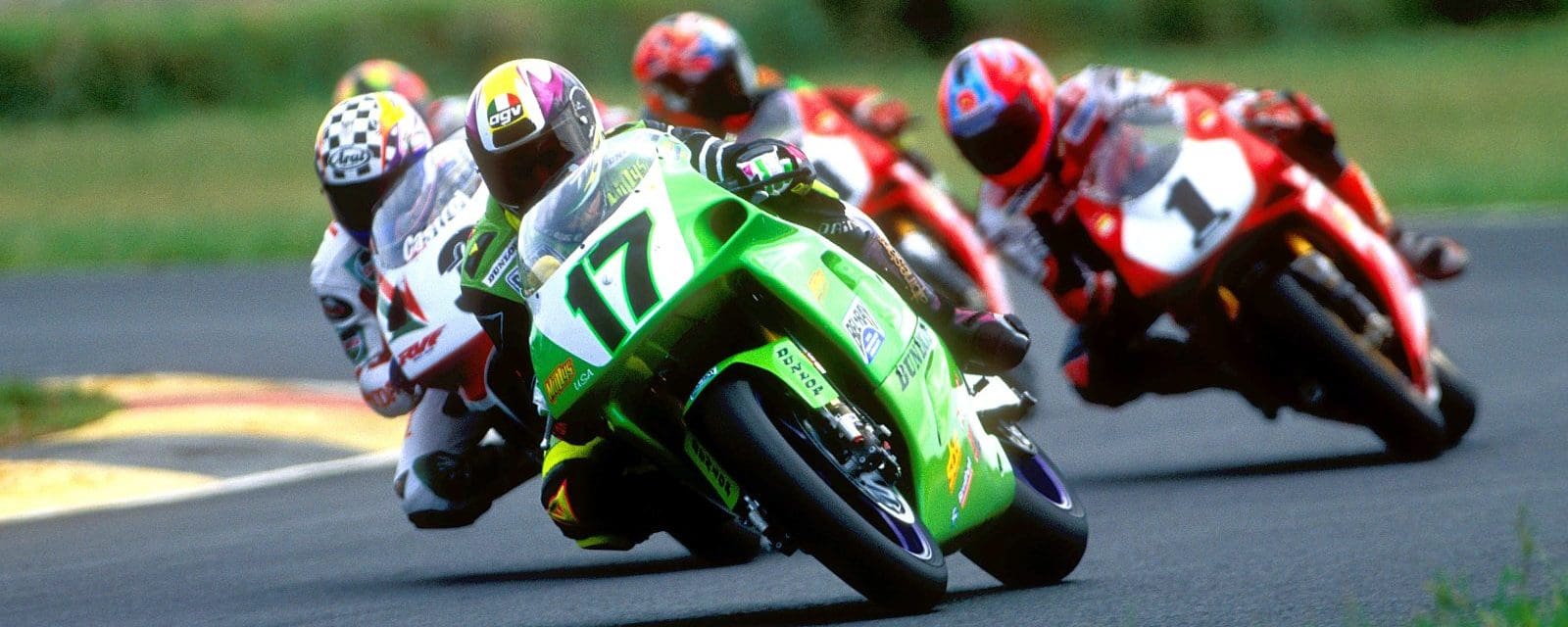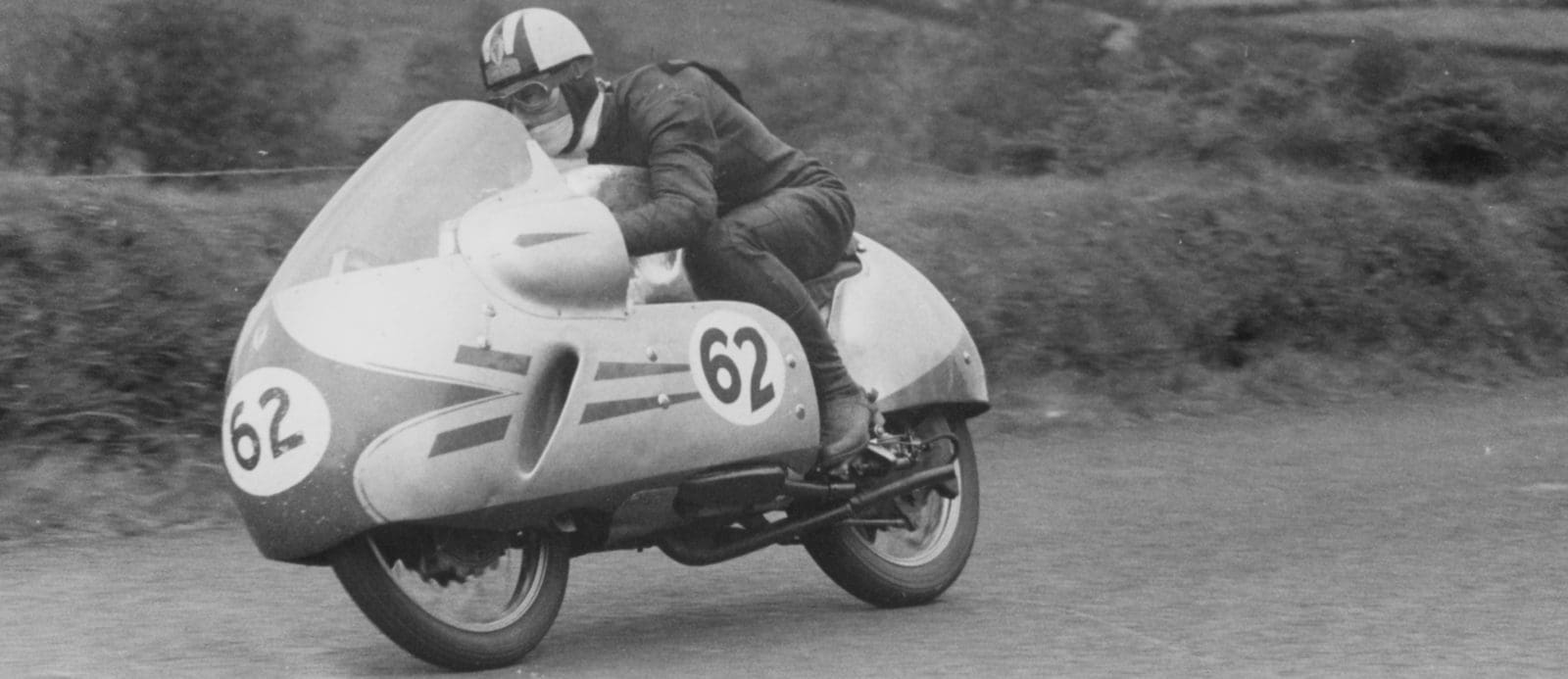Denny McCormack was one of a kind – a free-wheeling wild child of the 50s and 60s and a self-confessed health nut who only ate salads, wheatgerm and fruit, long before it was fashionable. Denny was also a fitness freak who loved surfing and cycling. A carpenter by trade, he was one of Australia’s first fully professional motorcycle racers who carefully scheduled his race season to maximise his earnings and minimise his expenses. With only five big prizemoney events in South Australia each year, Denny racked up hundreds of thousands of kilometres over his career racing interstate. Money being scarce, he had a knack for publicity. In the twilight of his career, Denny performed a wheelie on his Yamaha 350 in his birthday suit, with the photo appearing in Cleo magazine.
A rocker who loved dancing, singing and drumming, Denny started his love affair with bikes wrapped in a leather-jacket and sat on a Bonneville. There was also a Tiger 100 and a mate with a Square Four Ariel that Denny learned to wheelstand. He later jumped on a Suzuki Hustler in 1967. That led him to Mallala where he cleaned up in the B-grade races at the advanced age of 27. He made it to A grade just nine months later, and racing became a huge part of his life. He had earlier won the South Australian Sprint Championship, earning sponsorship from a Suzuki dealer. Denny enjoyed early success with the marque winning eight state championships aboard the Dean Harrison-tuned Suzuki 125, and a Harrison Suzuki 500. In the 1972 Castrol Six Hour, he finished third in the 250 class. In grand prix bike racing, Denny was rated one of the fastest Yamaha 350 pilots of his era.
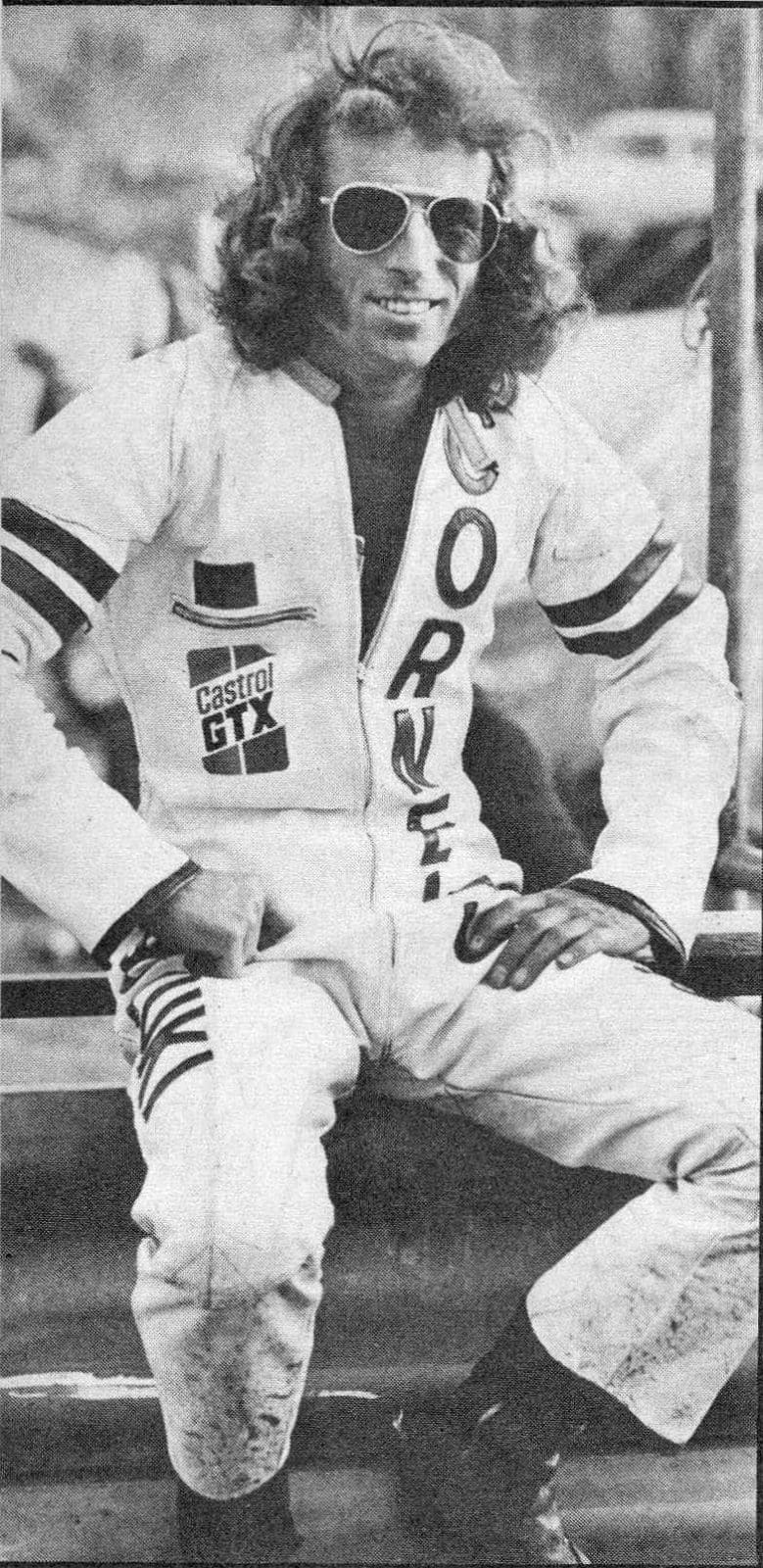
Denny joined some of the greats like Len Atlee, Ron Toombs, Ken Blake, Gregg Hansford, Rob Phillis and Daryl Beattie as a winner of the Harvie Wiltshire Trophy at Hume Weir in 1974. Famous for his long locks and Elvis sunnies, Denny was one of the first riders to wear the legs of his leathers on the outside of his boots, three decades before Valentino Rossi. Like many top racers, Denny had a couple of big crashes, and these had an enormous impact on his life. The first was at Adelaide International Raceway. He was clinically dead for eight minutes before being revived by an ambulance man, who would speak at Denny’s funeral 40 years later. He later had his head run over at Mac Park, which forced his retirement from racing. Always the competitor, Denny recovered and would excel in SA cycling events through the 70s and 80s.
In the 1990s, though, Denny began to suffer the after-effects of the serious head injury he sustained at Mac Park. Unable to look after himself, his life spiralled out of control and he ended up on the streets. Football identity-turned-newspaper columnist Graham Cornes was walking through an Adelaide park in 2001 and came across a vagabond sitting on a bench. As he neared the man, Cornes recognised him and asked: “Aren’t you Denny McCormack?” Cornes wrote a heartfelt story about the tragic fall of one of South Australia’s forgotten heroes. Denny’s old friend Heather Bradley found out about Denny’s plight, and set off on a desperate search for him. “I spent days going from every hostel and flop house in Adelaide to track Denny down and I eventually found him,” Heather says. “After knocking around with Denny in our teens, I couldn’t believe this great looking guy who was so fit, so much fun and full of life was in such a terrible state. I eventually became his guardian and carer, but it was very difficult because Denny had behavioural problems from his head injuries. I made the commitment to stay by him for all those years because we shared a friendship going way back. He always said I was his angel, which was a good thing because I had to pluck him out of some incredibly bad situations.”
Heather was holding Denny’s hand when he passed away from septicaemia in March 2014. He kept winking at her during his final hours, acknowledging that he still knew who she was and what she meant to him. He was 72.
Darryl Flack
